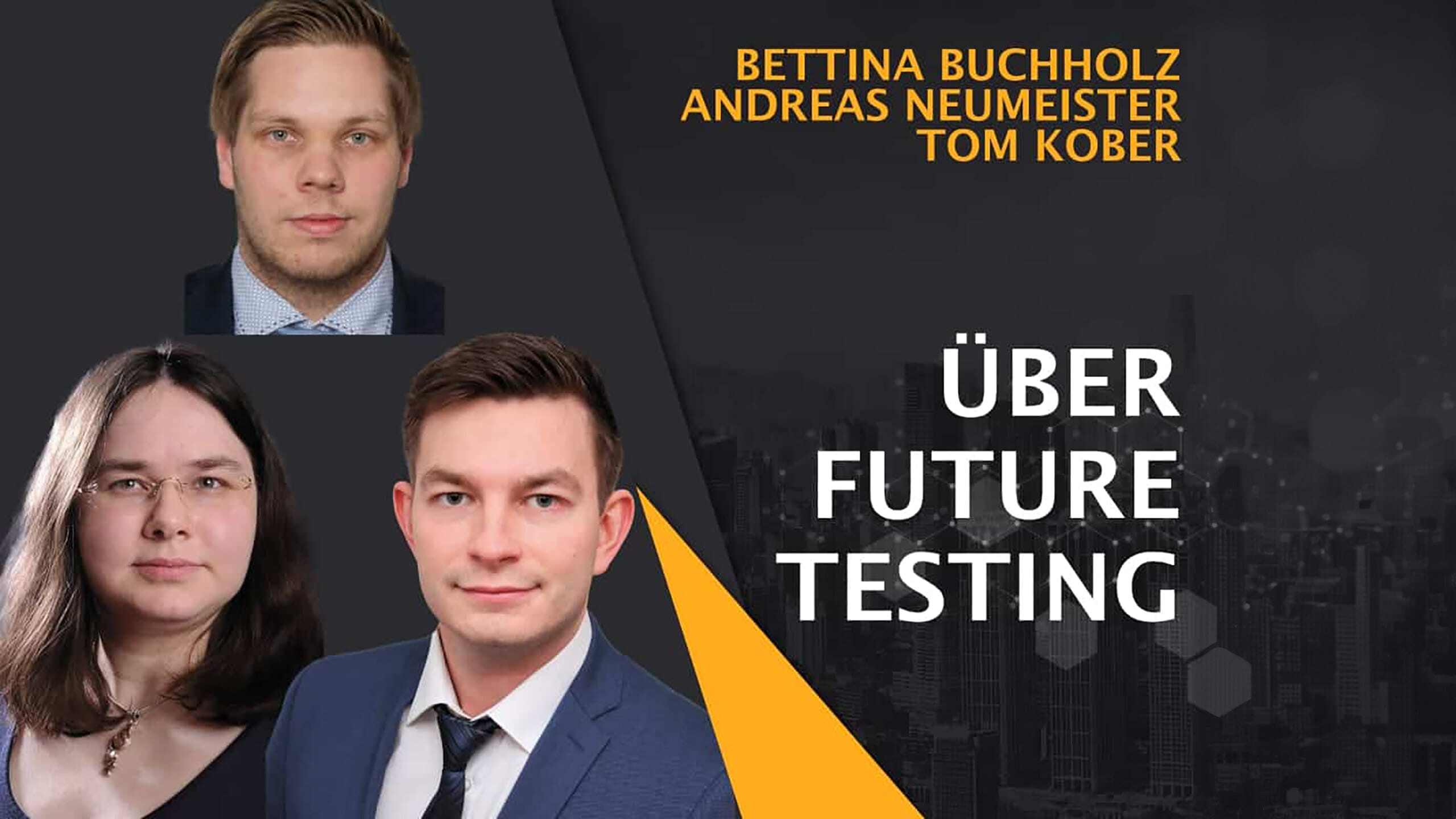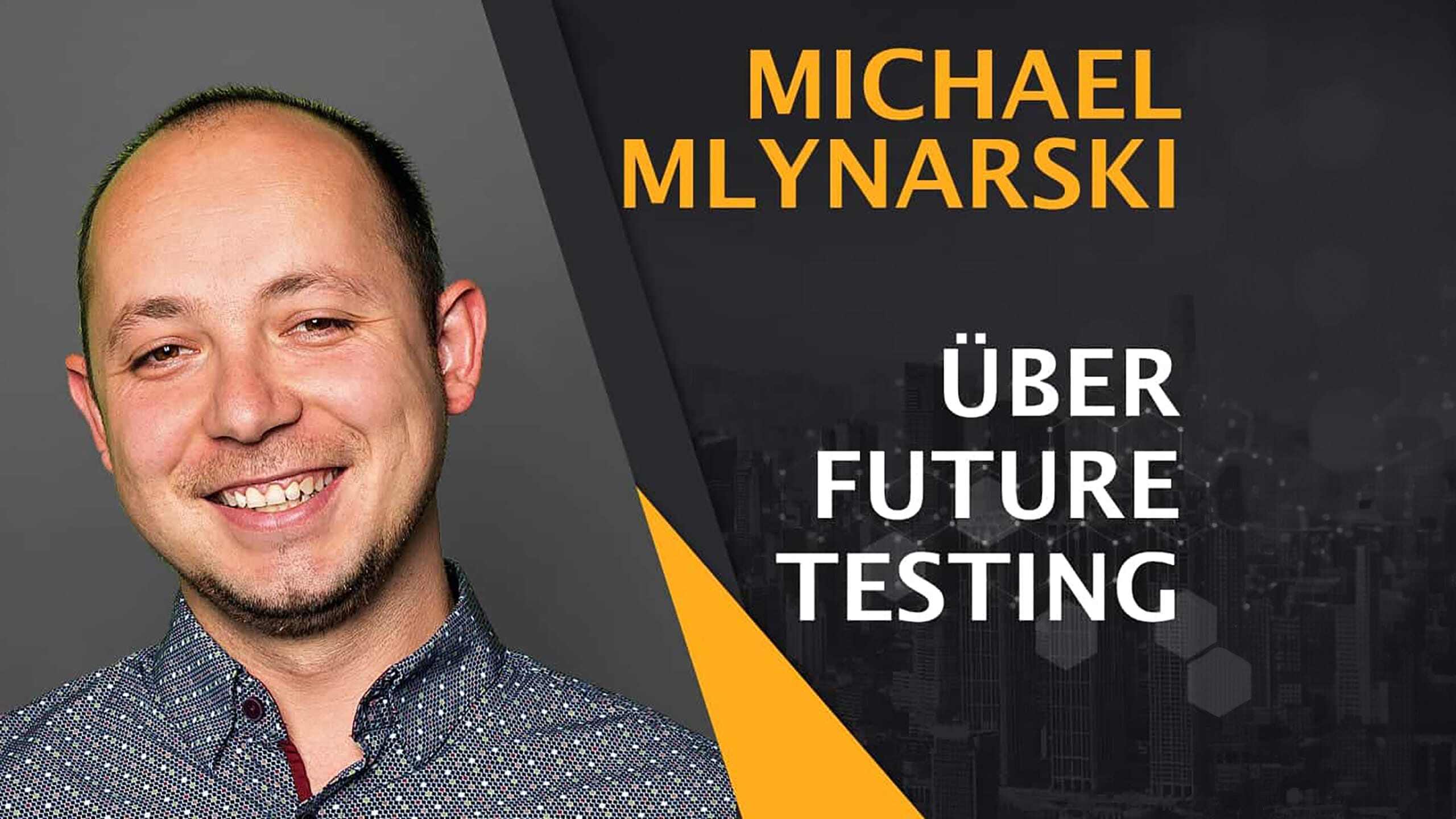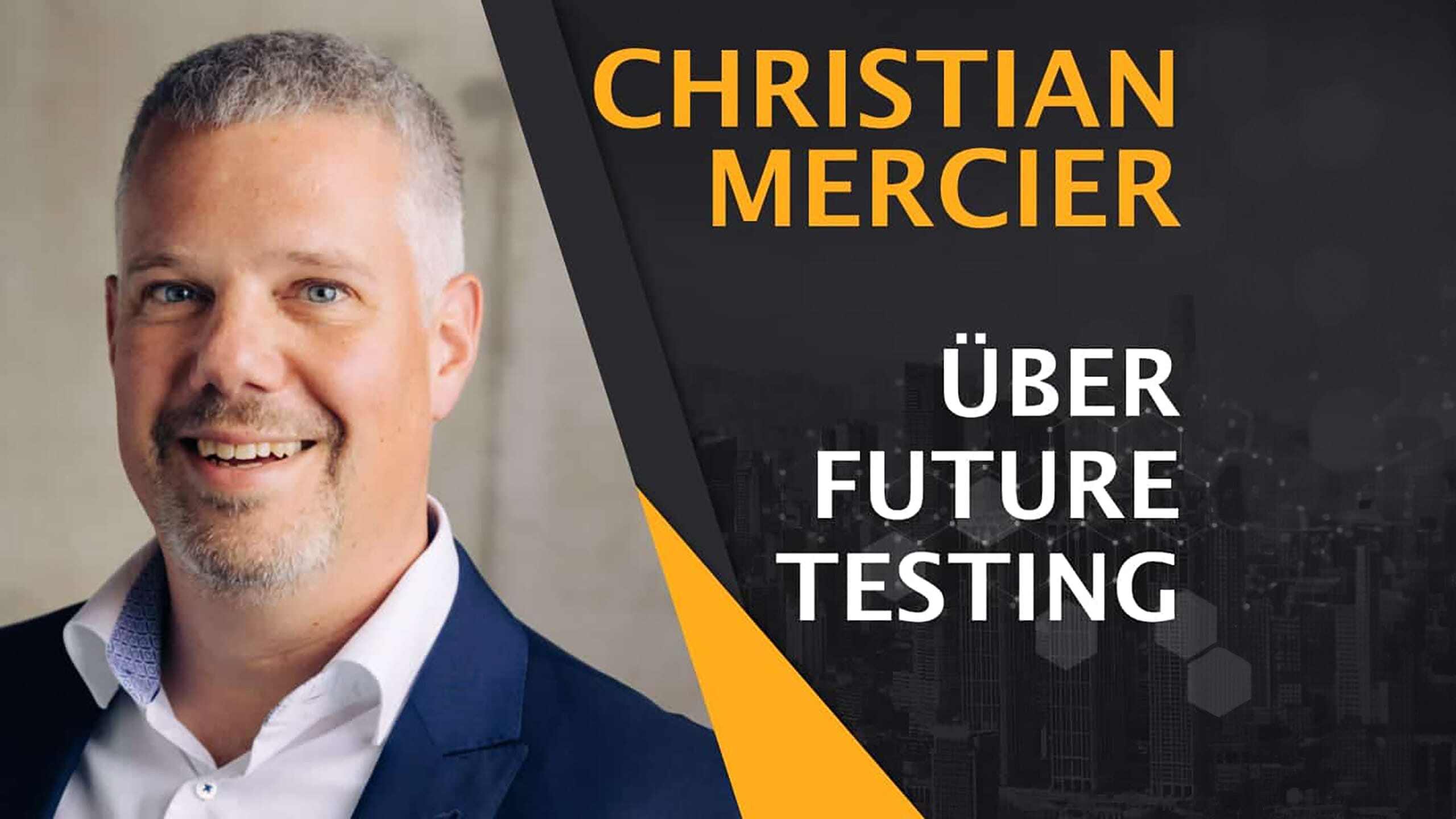Software testing in the future - Interview with Deutschen Bahn
Bettina Buchholz is Strategic Lead for Quality Assurance & Test at DB Netz AG and is Product Owner of the test-focused CI/CD pipeline MoQ-AP (Modular...

Florian Fieber is the founder and managing director of QualityDojo IT-Consulting GmbH in Berlin and has been working as a consultant and trainer in the field of quality assurance for software systems for almost 20 years. He specializes in test management, the improvement of test processes and the business analysis of enterprise applications. In line with the company vision “Satisfied users through better software”, he supports his customers with strategic consulting and operational project support as well as with the qualification of employees and teams. He is also a volunteer in the German Testing Board e.V. for the further development of the “ISTQB Certified Tester” scheme and is currently Chairman of the GTB.
When I look into the future of our profession, I first look back at our past and my personal experiences and try to draw conclusions for the future. I therefore assume that our (technological) world will change ever more rapidly and disruptively and that we will be confronted with significant new challenges in ever shorter periods of time.
I don’t know what will happen specifically. But I do know that things will continue to develop and change. For example, we now have a certain “common sense” about how projects should be organized. Twenty years ago, this looked quite different and will probably be just as different in twenty years’ time. The same applies to the buzzwords you mentioned, such as AI, AR and blockchain. For us as software testers, these are all boundary conditions that we cannot influence directly, but which we must be able to deal with. However, we can influence the way we work as software testers ourselves.
I therefore see two major challenges that we have to face as software testers: Firstly, I have to keep pace with the technological changes I have just described. I have to continuously expand my theoretical and practical knowledge and seriously engage with the topics on the horizon at an early stage. This is the part that we typically classify as “lifelong learning” and which is not so specific to software testing at first.
Secondly - and I think this is the more important aspect from a software tester’s point of view - I should master my craft in such a way that it is robust for the future, that it not only works today, but will probably also work in the future. The basic principles, methods and mindsets of a software tester are ideally independent of specific domains, systems, procedures or tools and, in particular, have a much longer shelf life.
So I don’t know what the “common sense” will be in the organization of projects in twenty years and what specific technological disruption we will be dealing with then - but I try to master the basic principles of the software tester’s craft today in such a way that it will probably still be valid in twenty years and I “only” have to adapt it to the boundary conditions that will then apply.
For example, it’s nice if I know how to use a specific test management tool today, but it won’t help me in the future if I don’t understand the underlying test management methods. It’s good today if I can operate a specific test automation platform, but it won’t help me in the future if I don’t understand the basic principles of test automation. Conversely, however, I am equipped for the test management tools and test automation platforms of the future if I have already mastered the underlying principles and methods today.
As described, we do not have to completely reinvent the testing of the future. Nevertheless, there is no “one” testing, just as there is no “today testing”, there will be no “future testing”. Testing will continue to evolve and certain trends and focal points will certainly play an even greater role in the future.
Testing already has a high level of acceptance today, and I think that this will continue to grow and that testing will become even better integrated with other development activities and become more and more established, especially in the early phases of software development. In addition, the focus will continue to be on testing quality requirements and non-functional aspects, particularly in the areas of IT security, usability and interoperability. And last but not least, we have experienced and learned about major changes in the possibilities of virtual and distributed collaboration over the past two years. The pendulum will certainly not swing back from 100% remote to 100% on-site. However, we have seen that remote can work and therefore need to focus even more on the technical and social challenges of distributed testing in order to create and maintain the right framework conditions.
In addition to lifelong learning, having the right mindset and mastering the right principles and methods, it might help us in the community if we sometimes focused less on roles and more on tasks. For example, in my view it is pointless and energy-sapping to deal with the question of whether “you still need a test manager these days”. We should move away from the question of the correct role designation and focus on which tasks are important and how we can map these tasks in the best possible and sustainable way in our specific project context. In the future, there will still be classic organizational forms in which projects are organized hierarchically and “you need a test manager” - whether you personally think this is good or bad is irrelevant. At the same time, there will also be holocratic forms of organization that will function completely differently. In both forms, however, we need to adequately map software testing and it would help each side to take a less dogmatic view of their own day-to-day work.

Bettina Buchholz is Strategic Lead for Quality Assurance & Test at DB Netz AG and is Product Owner of the test-focused CI/CD pipeline MoQ-AP (Modular...

Michael is a computer scientist who accidentally (or not) founded QualityMinds. He has around 20 years of experience in software engineering,...

Christian Mercier has been working in the financial services sector since 1996. From branch business to CRM, strategy and IT - from savings banks to...